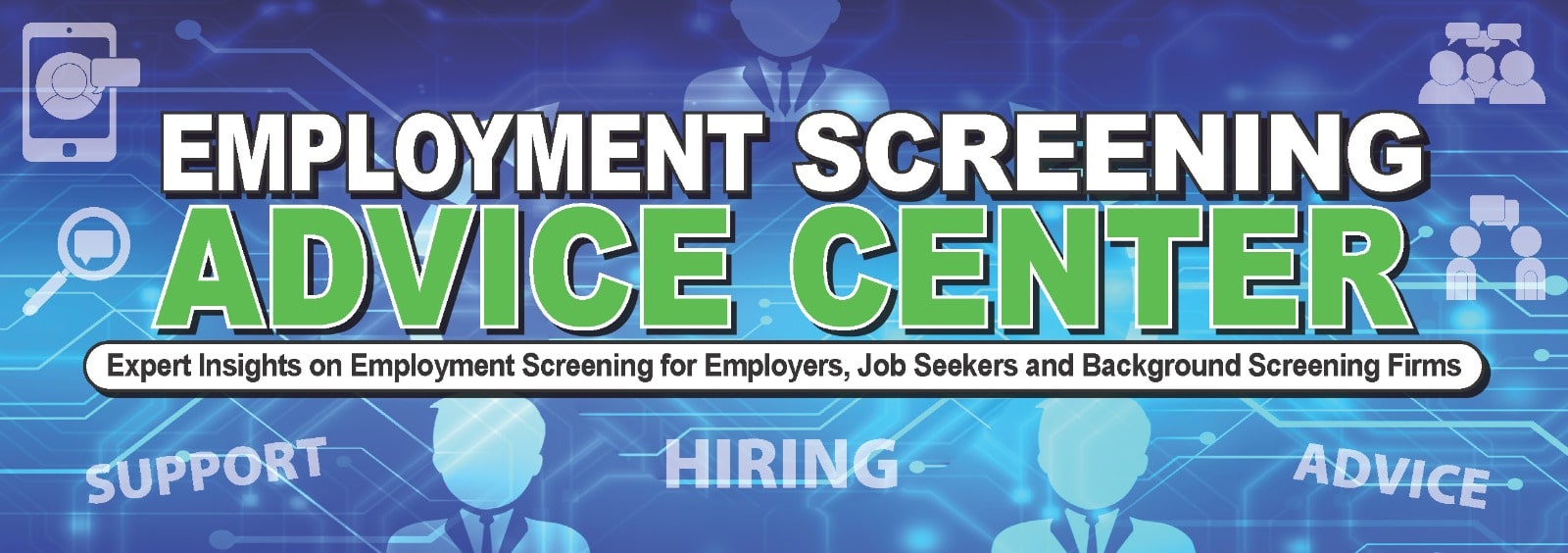
By Accurate Background
As a leading employment background screening provider, we strive to help candidates get hired quickly and employers find the right person for the job. Our goal is a seamless hiring process for all involved. To accomplish that, it’s important both employers and candidates understand employment background screening basics.
Pre-employment background checks provide the objectivity needed to ensure an organization is hiring qualified, trustworthy candidates. As screenings become more commonplace, it’s natural for questions to arise.
Businesses need to use caution when conducting background screenings for employment purposes, making sure to follow all local, state, and national laws.
Here are some of the most common questions about employment background checks to better guide you in implementing a screening tool.
Background screening basics FAQs
Q: What are the different components of a background check?
A: While the range of employment and background screening services vary by provider, here are the most common components:
- Criminal History – This type of service has spiked over the years due to the number of claims alleging that an employer was negligent in hiring or retaining an employee who committed an act of workplace violence or some other act that resulted in harm to a person or property (e.g., sexual assault, theft). Typically, a background check provider’s criminal history background check consists of searching some combination of county criminal records, statewide repositories, multi-state or national databases and/or federal district courts in order to report whether an applicant or employee has a felony or misdemeanor conviction, or some other type of criminal record.
- Sex Offender Registry – Sex offender registry searches can help identify whether an individual is listed as a registered sex offender. There are generally two main databases a background check provider might check: the national sex offender registry or a specific state’s sex offender registry, typically the applicant’s or employee’s state of residence.
- Employment Verification – This component typically consists of the background check provider contacting an applicant’s past or current employers to verify information provided, such as dates of employment, positions held, and sometimes eligibility for rehire. For an additional cost, some background check providers might also offer more detailed information about the applicant’s dealings with their prior employer, including more in-depth interviews of those who worked with the applicant.
- Motor Vehicle Records – For use when driving is part of the job, this check will report driving history relating to accidents, violations, suspensions, and felony and misdemeanor convictions for driving under the influence.
- Education – Educational background check services generally confirm an applicant’s credentials earned directly with schools or institutions, including dates of attendance, major, degrees earned, and graduation.
- Sanctions or Exclusions – These types of searches are often used by regulated employers that are prohibited from employing people on specific sanctions or exclusions lists. These include, among many others: child or elder abuse registries; global watch lists; the Office of Foreign Asset Control list; FACIS searches for federal, Medicare, and Medicaid sanctions lists; Office of Inspector General exclusions lists for healthcare providers; and the FINRA Broker Check. Beyond these, some employers also verify professional licenses, check social media, or test for drugs or alcohol.
- Credit Check – Credit reports search nationwide through the major credit bureaus to reveal any discrepancies or areas that merit closer inspection. Credit reports include information about an individual’s bankruptcies, tax liens, judgments, accounts in collection, negative accounts paid or charged off, and active accounts. Some states and localities restrict an employer’s ability to use credit information for employment purposes except for certain positions.
Q: How does an employer decide what components to include in its background check order?
A: There is no “one size fits all” approach to employment background screening. As a general rule, it is suggested that employers only consider components that relate to the specific job. Beyond that, employers select different components depending on their goals, business needs, and regulatory requirements, if any.
Q: What is the cost of a background check?
A: Background checks can vary in cost depending on several considerations, including but not limited to, the number of search types (criminal, credit, education, employment, etc.), the number of cities, states, countries it has to search, how far back in time in needs to search (5, 7, 10 years, etc,)
Q: How long does it take to get the results?
A: This depends on the type of background check the employer or organization orders. Some components can be completed within a few days whereas others could take longer. Delays might occur if the applicant or employee provides incomplete or inaccurate information or if the background check provider has difficulty accessing records or the data source. Not all county courts have their records in digital or electronic format, which means the background check provider might have to manually search the court record. It can also depend on the response time of the data source needed to provide information such as public records, educational institutions, previous employers, etc.
Q: Can an employer simply research an applicant’s background on the internet or online court databases?
A: Depending on the number of people being considered for jobs or current employees, it is usually not cost-effective for employers to perform background checks in-house. Moreover, employers that do their own internet searches may be relying on false or outdated information and might not know for certain whether their applicant or employee is the same person they are trying to verify.
Q: What if the information in the report is incorrect?
A: The federal Fair Credit Reporting Act requires background check providers to have in place “reasonable procedures to assure maximum possible accuracy of the information concerning the individual about whom the report relates.” If an employer considers withdrawing a job offer from an applicant or terminating an employee based in whole or in part on information in the background check report, the applicant or employee will receive a complete copy of their report. Law also mandates employers go through what’s known as a pre-adverse and adverse action process. This means employers need to inform the candidate that information that may impact the hiring decision was found on a background report and give the candidate an opportunity to explain or dispute the information. You can learn more about the pre-adverse and adverse action process here. Once this happens, the subject of the report can submit a dispute with the background check provider if they believe the information in the report is inaccurate or incomplete. After a reinvestigation, the provider will advise the employer whether the information as reported was correct or needs to be deleted or corrected.
If interested in learning more about background screening basics and get answers for the most common questions employers have about background checks, watch our “Background Checks 101” webinar or download our Background Checks 101 eBook for more information.
https://www.accurate.com/blog/background-screening-basics-what-you-need-to-know/


